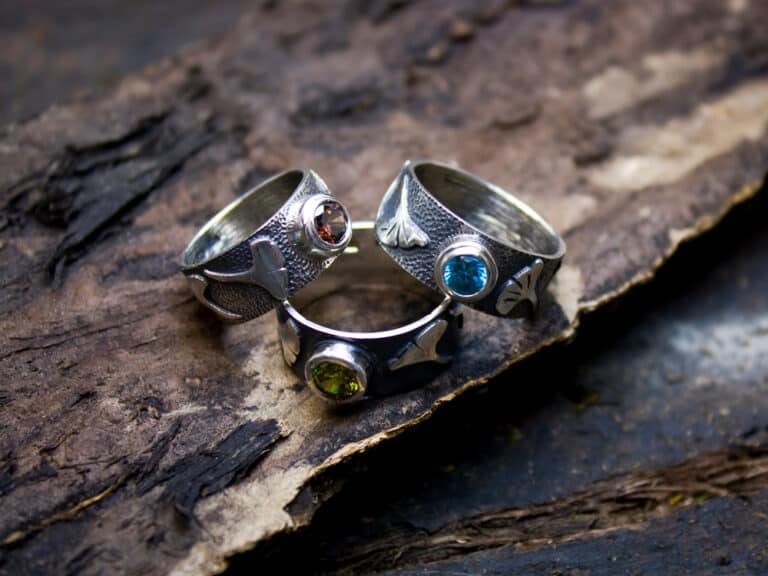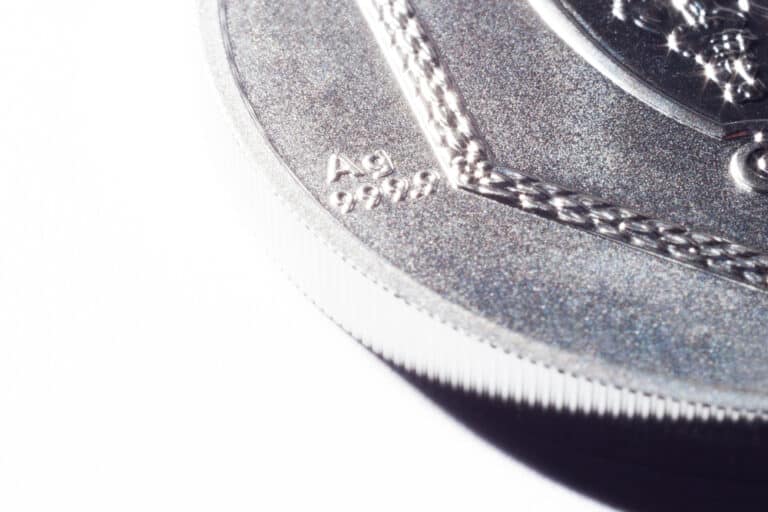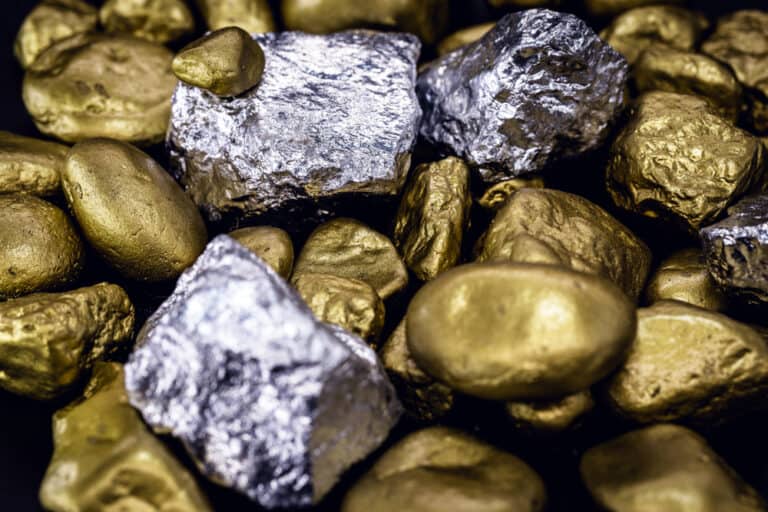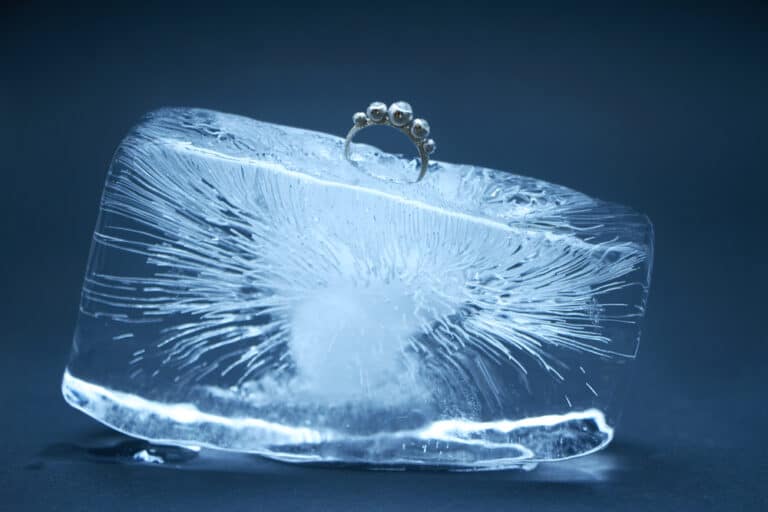Oftentimes we forget to take our jewelry off when having a shower, taking a bath, or even going for a swim. Also, what if your silver investment coins get wet? Will frantically patting your jewelry or coins dry prevent damage, or is silver waterproof? Let’s find out.
Water can oxidize the silver. When silver becomes oxidized, it is likely to tarnish; because silver is a natural metal, it can react to many different things, water being one of them; however, swimming or bathing once or twice with your silver should not affect it immediately.
The bottom line is that I advise removing your silver and preventing it from getting wet. That said, there is a lot that we need to discuss in this article. You should be more prepared to take care of your valuable silver pieces by the end.
What Happens If You Put Silver In Water?
Silver does not react with pure water. However, if there are chemicals in the water, the silver will oxidize, causing it to tarnish. Sounds simple, right? Well, silver is stable in both water and air. It is also acid and base resistant.
Being acid and base resistant means the silver can withstand exposure to certain acids and bases without being damaged or corroded. This means that it won’t react with things like vinegar or lemon juice and won’t tarnish or discolor when exposed to certain chemicals.
It is a good quality if you want your silver to stay shiny and looking new for a long time.
Can Silver Be Worn Daily?
Yes, silver is a great metal for jewelry; it’s super durable and can hold up well even with everyday wear. The key to keeping your silver looking shiny and new is to avoid exposure to harsh chemicals, high heat, or a lot of water.
Remember to clean it quickly every now and then to get rid of any dirt or tarnish. With a little TLC, your silver jewelry can look amazing for years.
Does Silver React With Hot Water?
Hot water can make silver tarnish faster. Tarnishing is just a fancy way of saying that silver gets a yellowish or blackish color over time. It happens when silver comes in contact with sulfur compounds in the air; heat can make it happen more quickly.
To keep your silver shiny, store it in a cool place, clean it regularly with mild soap and water, and don’t use anything too harsh to clean it or expose it to chlorine. That should do the trick.
Does Silver React With Sunlight?
Silver is a stable metal, and sunlight won’t affect it much. But, it can get all dull and discolored over time if it’s exposed to air and humidity. This process is called tarnishing, where a thin layer of silver sulfide forms on the surface of the metal.
Certain chemicals can make that tarnishing happens even faster if you’re not careful. But don’t worry; you can prevent tarnishing by storing silver in airtight containers or by applying a coating to protect the surface of the metal.
Does Salt Destroy Silver
Salt can be tough on silver, so it’s best to keep it away from your silver as much as possible. Doing this can be tough because even if you do not take your silver in the ocean, there is typically a small trace amount of salt in the air if you live near the sea.
Salt can scratch the surface of the metal and make it tarnish faster, thanks to the chlorine ions in the salt. It can also cause the silver to corrode if left in contact with the salt for too long.
To avoid this kind of damage, try to keep your silver away from salt or salt water. Clean and dry it well if it does come into contact. Taking good care of your silver is always good so that it can look great for longer.
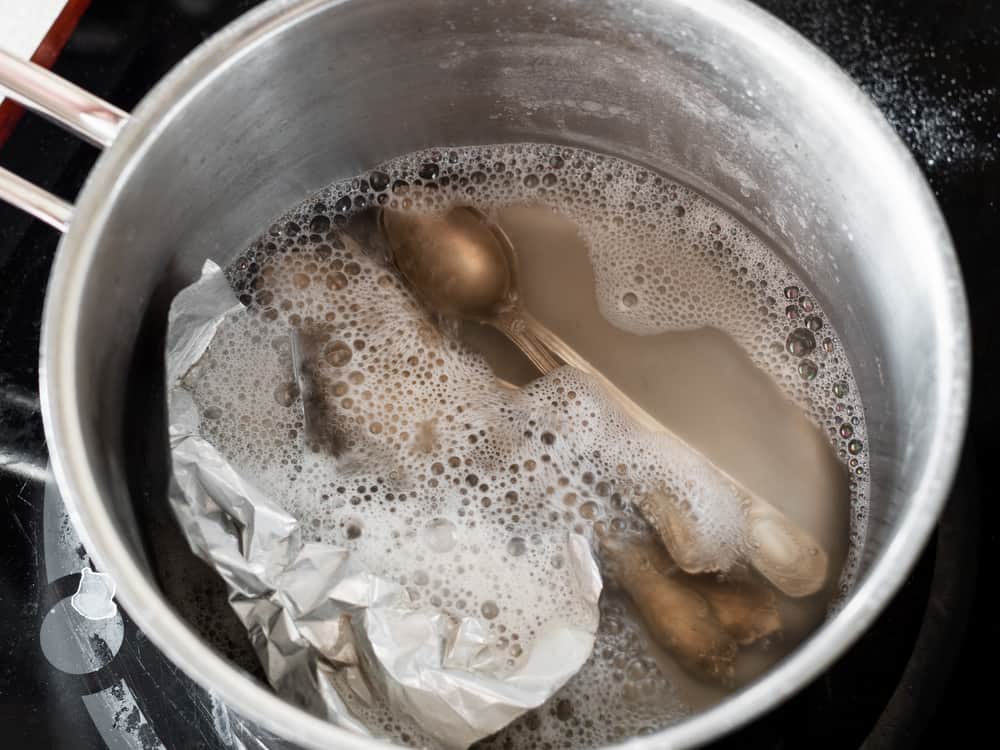
What Does Silver React Badly With?
In this article, we have learned much about silver, how it reacts with some chemicals, and how hot or cold water can affect precious metals. So, are there other things we should keep our silver away from? Well, here are four that I can think of:
- Watch out for sulfur compounds in the air; they can tarnish or discolor your silver.
- Chlorine and other halogens can also make your silver tarnish faster.
- Acids like lemon juice or vinegar can make your silver corrode or change color.
- Please don’t leave your silver in the sun or high temperatures for too long.
To keep your silver looking great, avoid these harsh conditions and chemicals and clean and store it properly.
Can You Ruin Silver?
Even though silver is highly regarded, it can actually suffer damage. It’s true! When exposed to air or certain chemicals, silver can lose its shine and take on a dull and discolored appearance.
Also, as if that’s not enough, scratches, dents, and other physical injuries can also mar the surface of this precious metal. Silver is even vulnerable to corrosion and pitting when it comes into contact with sulfur compounds.
It’s wild to think that something as precious as silver can still succumb to wear and tear despite our best efforts to care for it.
How Can You Tell Weather Silver Is Real Or Not?
Fake silver can get severely damaged by water, or it might be the complete opposite, which may sound good, but it means you have fake silver. So, there are a few ways to check if your silver is the real deal:
- Check for a hallmark or stamp: Most real silver will have a hallmark or stamp indicating purity, like “925” for sterling silver.
- Try the magnet test: Real silver isn’t magnetic, so if it sticks to a magnet, it’s probably fake.
- Do an acid test: Jewellers use special acid to check whether it’s real silver. Real silver reacts differently with acid than fake silver.
- Check the weight: Real silver is pretty heavy, so it should have a good weight. We have written a recent article regarding the weight of silver.
- Look for patina: Real silver gets a patina over time, a darkening of the surface caused by exposure to air and light. Fake silver won’t get a patina.
Keep in mind these methods aren’t foolproof, so it’s always best to get a professional or an expert’s opinion.
Conclusion
That brings s to the end of this extensive article regarding silver and how it reacts to water and other chemicals. Yes, silver and water are not the best combinations, but it takes a lot of water over an extended period to cause damage to silver.

